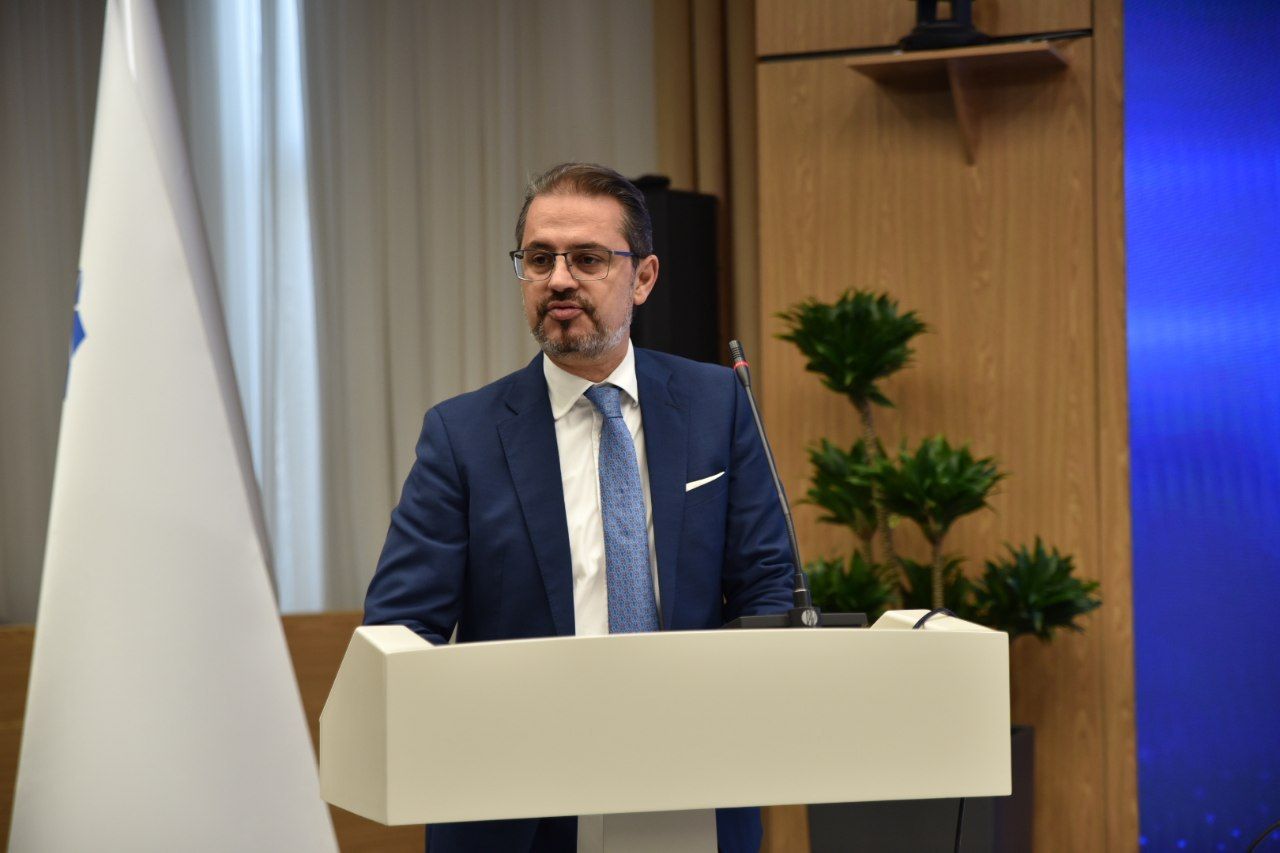BAKU, Azerbaijan, February 15. The European Bank for Reconstruction and Development (EBRD) set an investment record in Uzbekistan in 2024, signing 34 projects worth 938 million euros, Head of the EBRD office in Uzbekistan Andi Aranitasi told Trend.
According to him, Uzbekistan remained the largest recipient of EBRD financing in Central Asia and ranked fifth globally among the Bank’s investment destinations. The investments focused on key sectors, with 55 percent allocated to green economy projects, reinforcing the country’s commitment to sustainable development.
"The EBRD played a key role in supporting Uzbekistan’s transition to a greener economy. We provided a $65 million financing package for Central Asia’s first renewable hydrogen facility, a joint venture between ACWA Power and Uzkimyosanoat. This project will contribute to decarbonizing Uzbekistan’s fertilizer production sector," Aranitasi said.
He noted that the Bank also arranged an A/B loan of $226 million for the development of a 200 MW solar power plant and a 501 MWh battery energy storage system (BESS) in the Tashkent region. According to him, this marks one of the largest EBRD-supported BESS projects in the economies where the Bank operates.
Aranitasi highlighted the EBRD’s contribution to Uzbekistan’s energy infrastructure, including a $66.4 million sovereign loan to the National Electric Grid of Uzbekistan (NEGU). The financing will support the construction of a 230-kilometer, 500 kV transmission line in the Navoi region, helping to eliminate bottlenecks and integrate renewables.
Another key project, he said, is a $238 million sovereign loan aimed at rehabilitating a major road and constructing a bridge across the Amu Darya River in the Khorezm region. This will enhance connectivity and improve transport infrastructure in western Uzbekistan.
"The country’s financial sector attracted over 300 million euros from the EBRD through trade finance limits and loans to local institutions such as Hamkorbank, Ipoteka Bank, TBC Bank Uzbekistan, and Uzbek Leasing International. These funds were allocated to support SMEs, improve energy efficiency, and enhance economic inclusion," Aranitasi added.
He also noted that the EBRD increased its equity investment in TBC Uzbekistan, the country’s first digital bank, strengthening financial inclusion and digital transformation in the banking sector.
According to Aranitasi, another priority in 2024 was supporting Uzbekistan’s privatization program. "We are working with the government on the successful privatization of Asakabank, one of Uzbekistan’s largest state-owned lenders. This initiative is expected to improve competition and attract foreign investors," he said.
The EBRD also expanded its Advice for Small Business (ASB) program, launching 60 new advisory projects to support local entrepreneurs. Aranitasi emphasized that half of these projects targeted women-led businesses, while over 40 percent were in rural areas.
"Through specialized training, networking events, and online outreach, the program reached more than 80,000 entrepreneurs nationwide, helping them develop sustainable and competitive businesses," he noted.
Aranitasi concluded that in addition to investment activities, the EBRD engaged in policy dialogue with Uzbek authorities in 2024, facilitating the approval of key legal reforms in areas such as privatization, the electricity market, and subsoil use.
"These reforms are essential for improving the business climate, attracting more foreign investment, and ensuring Uzbekistan’s long-term economic growth," he said.







